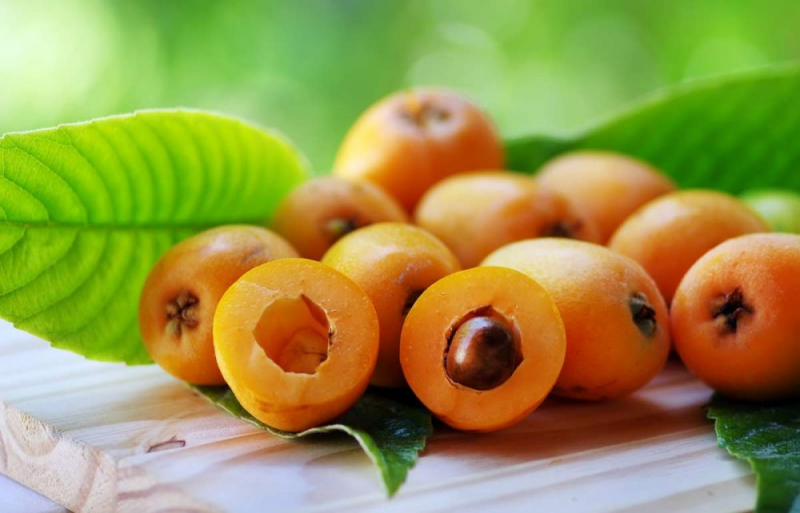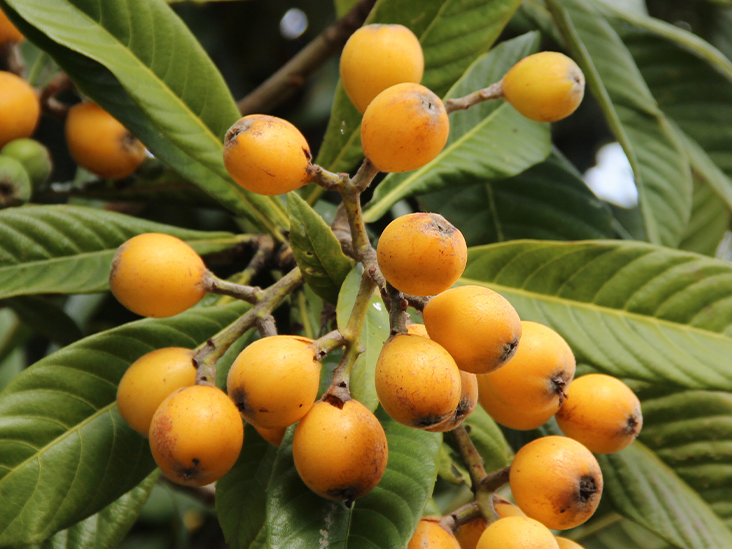Loquat

The loquat (Eriobotrya japonica) is a large evergreen shrub or tree, grown commercially for its orange fruit and for its leaves, which are used to make herbal tea. It is also cultivated as an ornamental plant. The tree can reach a height of 5–10 meters, however, it typically grows to be just 3–4 meters tall. Depending on the local temperature, the fruit starts to ripen in the spring through summer. The leaves are thickly velvety-hairy below and thick yellow-brown pubescence on the upper surface; the young leaves are also densely pubescent above, but this soon rubs off. The leaves are alternate, simple, 10-25 centimeters long, dark green, tough, and leathery in texture, with a serrated margin. The loquat is low in sodium and high in vitamin A, vitamin B6, dietary fiber, potassium, and manganese.
It belongs to the Rosaceae family and originates in the hill regions of China. Gradually, this fruit spreads to Cuba, Central America, Japan, and many European countries. The loquat is a simple plant to grow in subtropical to mild temperate regions. It is frequently planted first as an ornamental plant, particularly for its sweet-scented blossoms, and secondarily for its delectable fruit. The strikingly textured foliage gives gardens a tropical feel and contrasts well with a variety of other plants.











